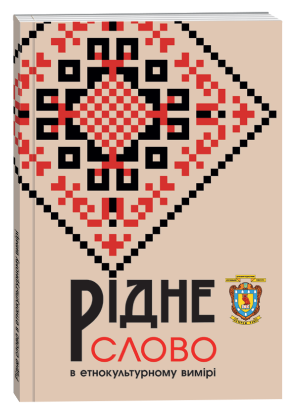VERBALIZATION OF THE CONCEPT “TRAITOR” IN R. IVANYCHUK’S NOVEL “FIERY PILLARS”
DOI:
https://doi.org/10.24919/2518-1602.2023.14Keywords:
concept, verbalizer, traitor, conceptual meaning, Roman IvanychukAbstract
The article analyzes the main means of verbalizing the concept “traitor” in R. Ivanychuk’s novel “Fiery Pillars”, and defines their semantic and functional features. It was found the verbalizers of the mentioned concept are most often nouns. Among the nouns, that are common names of people, we singled out the following verbalizers: traitor, apostate, sacrilegious, gunner, whistleblower, provocateur, janissary, executioner, etc. Many words indicate the characterological features of people, their moral defects, for example: coward, scoundrel, cretin. There are even obscene words among this group. A number of verbalizers objectify the conceptual meaning of “a person with a sense of national inferiority”. They include the following nouns: underman, stranger, enemy, mercenary, nobody, slave, etc. Among the verbalizers of the concept “traitor” in the text of the work we single out anthroponyms such as: Yuda, Janus, Barabash, Nis, Bryukhovetskyi, Andrii Bulba. The concept also finds verbal expression through abstract and collective nouns (adaptation, fratricide, treason, apostasy, conformity, duplicity, humility, fornication). Its verbalizers are singly zoonyms (bug, cockroach). Less often, the concept “traitor” is verbalized with the help of verbs. Among them are the following words: report, sell out, run away, go wild, etc. Single verbalizers are phraseological units. Verbal expression of conceptual meanings is also provided by separate word combinations and sentences (simple and complex, narrative and interrogative), which act as indirect verbalizers of the concept, creating the appropriate context. The mentioned verbalizers of the concept “traitor” give a description of people who commit treason, contain an assessment of various aspects of treason, highlight this negative social phenomenon in all its complex dimensions and understandings. The study of the concept of «traitor» and related concepts in Roman Ivanychuk`s works is promising.
References
Голубовська, І. (2016). Сучасна українська лінгвоконцептологія: стан і перспективи розвитку. Актуальні проблеми філології та перекладознавства: зб. наук. праць. 10(1). Хмельницький.
Дуденко, О. (2021). Вербалізація концепту «зрада» в однойменному романі Євгенії Кононенко («Зрада» (Zrada, made in Ukraine)»). Актуальні проблеми філології та перекладознавства: зб. наук. праць. 21, 1. Хмельницький. DOI: 10.31891/2415-7929-2021-21-8.
Еверетт, Д. (2019). Походження мови. Як ми навчилися говорити / пер. з англ. Геннадій Шпак. Київ : Наш формат.
Іваничук, Р. (2019). Вогненні стовпи. Харків : Фоліо.
Кобута, С. (2012). Художня реалізація концепту «державна зрада» в романах Івана Багряного «Сад Гетсиманський» та Джорджа Орвелла «1984»: порівняльний аспект. (Вип. 27). Наукові записки Національного університету «Острозька академія». Сер.: Філологічна.
Левчук, Ю. (2013). Концепти «зрадник» та «в’язень» як жанрові домінанти творів О. Кобилянської та Лесі Українки. Науковий вісник Чернівецького національного університету. Слов’янська філологія. 697–699.
Селіванова, О. (2006). Сучасна лінгвістика: термінологічна енциклопедія. Полтава : Довкілля-К. Словник української мови в 11 томах. URL: http://sum.in.ua (дата звернення: 20.08.2023).
Троша, Н. (2019). Художня репрезентація концепту «відступник» у літературній творчості Олександра Довженка. (Вип. 13). Літератури світу: поетика, ментальність і духовність. Кривий Ріг. DOI: 10.31812/world_lit.v13i0.2379.
Ясногурська, Л. Концепт ЗРАДА: лінгвокультурний та корпуснобазований підходи (на матеріалі української та англійської мов). (Дис … канд. філол. наук: 10.02.15). Рівне, 2018.

